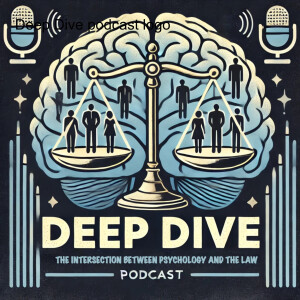Episodes

Monday Feb 24, 2025
Monday Feb 24, 2025
Notebook LM generated. The Credit Theory posits that money's essence is not as a physical commodity, but as a social relation representing debt/credit. All participants in a monetary system engage in these relations, settled by transferring abstract value.
The Tax Driven Money approach, a specific form of credit theory, argues that the government's power to levy taxes and demand payment in a specific unit of account drives the value and general acceptability of money.

Friday Feb 21, 2025
Friday Feb 21, 2025
This AI generated podcast delves into Hobbes' classic treatise on liberty, emphasizing that true freedom isn’t an inherent quality but rather the absence of external constraints. An Obama-esque reflection ties these philosophical concepts to the Founding Fathers, showing how such debates continue to shape American political thought by balancing individual rights and government responsibility.

Friday Feb 14, 2025
Friday Feb 14, 2025
Google Notebook LM generated: This document by Nicholas Kaldor provides an overview of the concept of an expenditure tax, as detailed in the Advisory Commission on Intergovernmental Relations' 1974 report. The report examines the historical context, theoretical underpinnings, administrative feasibility, and potential applications of an expenditure tax. This tax, is fundamentally different from an income tax because it taxes what individuals spend rather than what they earn.

Wednesday Feb 12, 2025
Wednesday Feb 12, 2025
Google LM generated:This article examines Max Weber's approach to the Methodenstreit, a late 19th-century debate in economics about methodology. It contrasts Weber's integrated method, which combines historical context, empirical evidence, and theoretical models, with the more deductive and ahistorical views of economists like Carl Menger and Ludwig von Mises. Ultimately, we explore the ongoing tension between theory and empirical observation in economics.

Tuesday Feb 11, 2025
Tuesday Feb 11, 2025
An 2007 Nation article by Chris Hayes about the current state of the economics discipline read using the Kokoro AI generated voice.

Monday Feb 10, 2025
Monday Feb 10, 2025
A Google NotebookLM generated podcast: The Cambridge capital theory controversies debated the validity of neoclassical economics' aggregate production functions and the measurement of capital, ultimately questioning whether the rate of return on capital is determined by its marginal productivity, and whether comparative statics can adequately analyze processes of economic growth.

Saturday Feb 08, 2025
Saturday Feb 08, 2025
Google LM generated podcast: This Levy Economics Institute working paper surveys heterodox economic theories of money's value, rejecting orthodox views linking it solely to scarcity or price levels. The paper integrates several heterodox approaches: reinterpretations of Marx's labour theory of value by Graeber and Foley; Keynes's liquidity preference theory as developed by Minsky and Kregel; and MMT perspective on sovereign currency.

Monday Feb 03, 2025
Monday Feb 03, 2025
This excerpt from Jean Baudrillard's Simulacra and Simulation explores the concept of simulation and its impact on reality. Baudrillard argues that simulation has superseded representation, creating a hyperreal where signs no longer refer to a deeper meaning but exist as self-referential systems.

Monday Dec 16, 2024
Monday Dec 16, 2024
Google LM generated: David Graeber explores the concept of "culture as creative refusal," arguing that many cultural forms arise not organically but as conscious rejections of other cultures' values. The essay proposes that understanding history requires recognising these acts of cultural rejection and their ongoing influence. The author ultimately suggests that the seemingly disparate elements of Malagasy culture are better understood as a unified, defiant response to external powers.

Monday Oct 07, 2024
Monday Oct 07, 2024
GoogleLM generated podcast. This article argues that using the phrase "taxpayer money" is harmful because it perpetuates a myth that only certain groups of people contribute to society, particularly wealthy, white, and male individuals. The author contends that the phrase reinforces the idea that taxation is theft, and that government spending is somehow stealing from “taxpayers” rather than utilising public money for the benefit of everyone.





